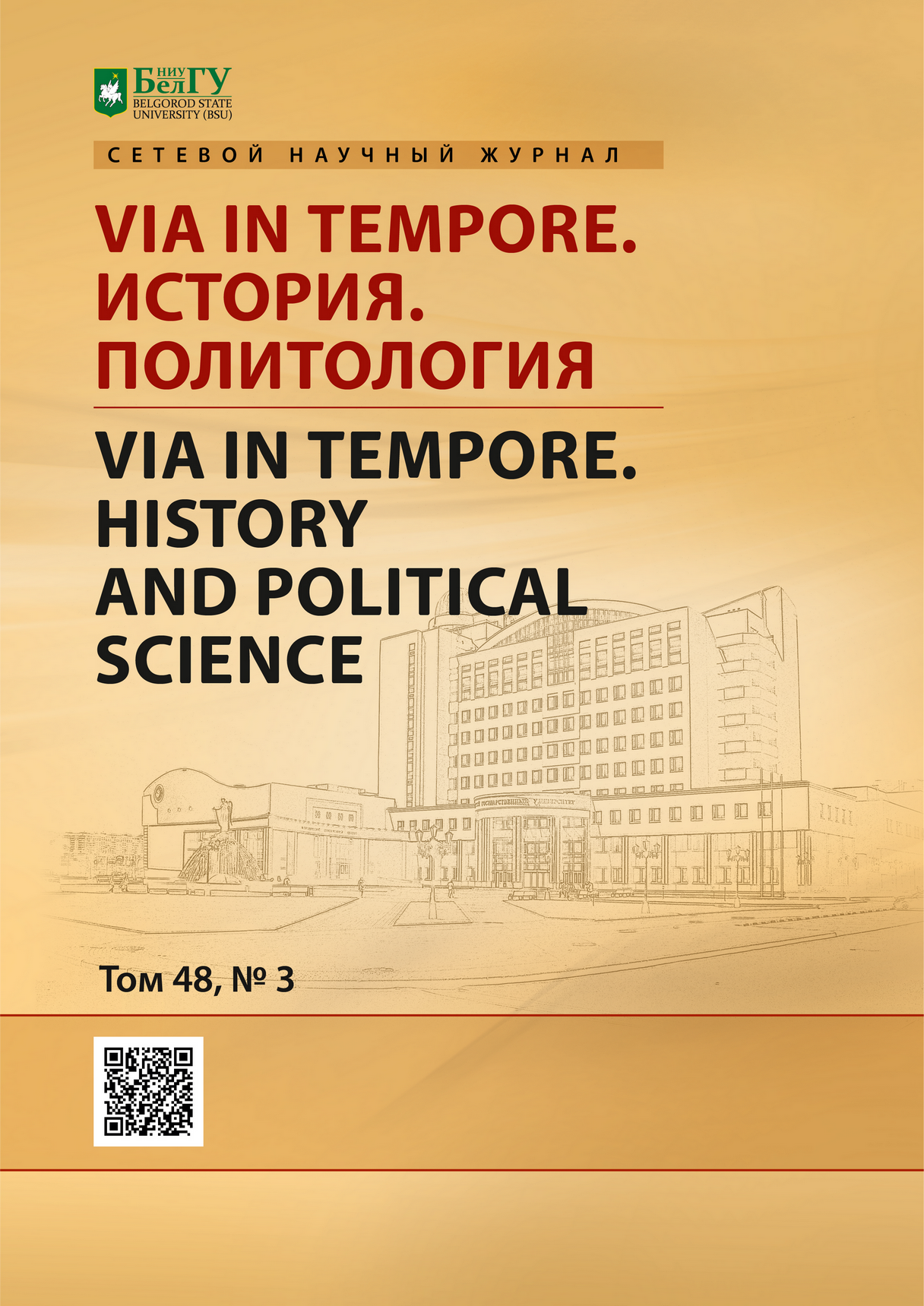The political subjectivity of travel bloggers and online communities
DOI:
https://doi.org/10.52575/2687-0967-2021-48-3-724-736Keywords:
political subjectivity, bloggers, Influencers, soft power, online space, political communication, political influence, online communication, tourism communitiesAbstract
The article offers an interpretation of the activities of online travel communities as political subjectivities and a soft power tool. The results of empirical research obtained through interviews with influential bloggers, users of popular travel websites and a content analysis of comments posted in the Vinsky Forum are discussed. The conclusion is drawn that, although it is premature to talk about the awareness of online travel agents of their political influence and their place in the development of international cooperation, nevertheless, acting similarly to new media, bloggers appear as opinion leaders, and the activities of online travel communities can be interpreted as a form of public diplomacy. The purpose of this paper is to investigate the activities of online travel communities as subjects of political influence in the digital environment. The research hypothesis is that specialized forums and social networks for travelers acquire the status of political players in the digital environment, influencing the formation of the image of countries and regions, the decision-making of participants in online travel communities. With online tourist activity is associated the search for new incentives for the development of world economies in a crisis situation: the activities of participants in the tourism business in the most stringent periods of social constraints was fully transferred to the online environment, demonstrating non-standard methods of solving management problems in a critical period.
Downloads
References
Вебер М. 2017. Власть и политика. М., Рипол Классик, 432 с.
Гнидина Ю.А. 2010. Субъектность личности как условие развития государства и гражданского общества. Балашиха, Ин-т социально-экономического прогнозирования и моделирования, Де-По, 192 с.
Гомеров И.Н. 2011. Политическая субъектность в структуре политических отношений: теория и российские реалии. Новосибирск, Новосиб. гос. ун-т, 885 с.
Гомеров И.Н. 2015. Субъект как смысловое ядро политической субъектности. Развитие территорий, 3: 51–62.
Кастельс М. 2020. Власть коммуникации. Пер. с англ. Под науч. ред. А.И. Черных. М., Изд. дом ВШЭ, 564 с.
Лебедева М.М. 2017. «Мягкая сила»: понятие и подходы. Вестник МГИМО-Университета. 3 (54): С. 212–223. DOI: 10.24833/2071-8160-2017-3-54-212-223.
Най Джозеф С. 2006. Гибкая власть: как добиться успеха в мировой политике; перевод В.И. Супруна. Новосибирск, М., Фонд Социо-прогностических исследований «Тренды», 221 с.
Soft Power, мягкая сила, мягкая власть. Междисциплинарный анализ: коллектив. монография. 2020. 4-е изд. Под ред. Е.Г. Борисовой. М., ФЛИНТА, 184 с.
Soft power: теория, ресурсы, дискурс. 2015. Под ред. О.Ф. Русаковой. Екатеринбург, Издательский Дом «Дискурс-Пи», 376 с.
Першуткин С.Н. 2014. Субъект и субъектность в контексте политических коммуникаций. Коммуникология: теория и методология, 3: 79–93.
Чугунова А.А. 2019. Турист как СМИ: новый вызов профессиональным коммуникаторам в цифровую эпоху. Сборник XVI Всероссийской научной конференции «ИНФОРМАЦИЯ – КОММУНИКАЦИЯ – ОБЩЕСТВО». СПб: ЛЭТИ, 383–389.
Шеляпин Ф.И. 2008. Политическая субъектность в современном политическом развитии: теоретико-концептуальный характер : автореф. дис. ... канд. полит. наук: 23.00.01. М., 30 с.
Gavra D., Dekalov V., Naumenko K. 2020. Digital Subjects as New Power Actors: A Critical View on Political, Media-, and Digital Spaces Intersection. In: Kotenko I., Badica C., Desnitsky V., El Baz D., Ivanovic M. (eds) Intelligent Distributed Computing XIII. IDC 2019. Studies in Computational Intelligence, vol 868. Springer, Cham. https://doi.org/10.1007/978-3-030-32258-8_28.
Gavra D., Dekalov V. 2019. Networked Society and its New Power Actors: Critical Analysis of Hardware, Software, and Communicative Level of Digital Space. IEEE Communication Strategies in Digital Society Seminar, ComSDS. Institute of Electrical and Electronics Engineers Inc.: 70–75.
Jafari J., Xiao H. (eds.). 2015. Encyclopedia of Tourism. Springer International Publishing Switzerland. DOI 10.1007/978-3-319-01669-6_184-1.
Nye Joseph S., Keohane Robert O. 1971. Transnational Relations and World Politics: An Introduction. International Organization, vol. 25, no. 3, JSTOR: 329–349.
Nye Joseph S. 1990. Bound To Lead: The Changing Nature Of American Power. Basic Books, 307 p.
Abstract views: 332
Share
Published
How to Cite
Issue
Section
Copyright (c) 2021 Via in tempore. History and political science

This work is licensed under a Creative Commons Attribution 4.0 International License.


